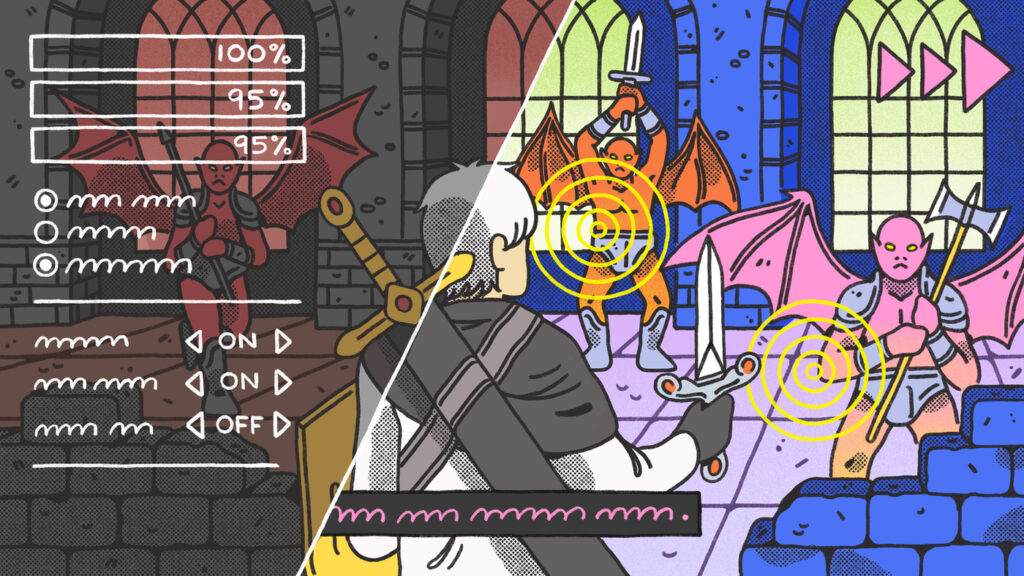
Accessibility has long been on the back burner in the video game industry. But things have changed over the past decade because incentives have changed. There are an estimated 46 million gamers with disabilities, creating a strong incentive for video game companies to improve their accessibility efforts.
NPR's Theresa O'Reilly
hide caption
toggle caption
NPR's Theresa O'Reilly

Accessibility has long been on the back burner in the video game industry. But things have changed over the past decade because incentives have changed. There are an estimated 46 million gamers with disabilities, creating a strong incentive for video game companies to improve their accessibility efforts.
NPR's Theresa O'Reilly
Games provide entertainment and community to billions of people around the world. However, video games have not always been accessible to people with disabilities. But this is changing.
Today, in the next installment of our series on the business of video games, we look at how accessibility has become a key priority for game developers, and how its champions have pushed accessibility to this point. This section explains.
Related episodes:
Forever games: The economics of the live service model (Apple / Spotify)
For unsponsored episodes of Planet Money's The Indicator, subscribe to Planet Money+ on Apple Podcasts or at: plus.npr.org.
music: drop electric. Find us: tick tock, Instagram, Facebook, Newsletter.


